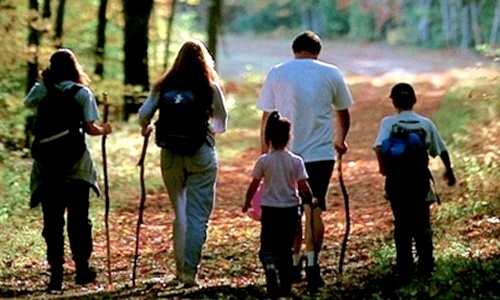

One of the original anti-Black Friday companies, Patagonia, ran this full-page ad in the New York Times discouraging consumers from spending money on Black Friday in 2011:
Though Patagonia doesn’t close its stores on Black Friday, they suggest customers sit out “Cyber Monday” on their website. And in 2013, it launched its Responsible Economy campaign, declaring that “growth is dead.” And for the past several years, the company has been focusing on its Worn Wear program, which evolved from the “Don’t Buy This Jacket” ad campaign.
As part of that effort, they run the largest garment repair factory in North America—with upwards of 30,000 repairs per year. They’ve also invested in Yerdle, a web startup that allows you to swap items via its app, and Beyond Surface Technologies, a Swiss start-up that’s developing high-quality, durable textiles based on natural raw materials.
These investments were both part of its $20 Million & Change venture fund that invests in companies making positive impacts on the environment. And they took their Worn Wear program on the road this past spring, driving a biodiesel-fueled, reclaimed wood camper around the country and teaching people how to repair their gear (Patagonia or other brands), so that they wouldn’t have to buy more stuff.
So how has this anti-growth strategy worked for Patagonia’s sales? Pretty darn well. Patagonia expects to gross about $600 million this year, according to the New Yorker. In fact, encouraging people to buy less has ironically spurred sales. Cynics will say Patagonia’s “buy less” is just a very effective marketing campaign. But the company has the environmentally- and socially-conscious cred to back it up. In addition to the aforementioned campaigns, it also “donates one percent of its revenue to environmental causes” and “co-founded the Sustainable Apparel Coalition, in which such companies as Target and Walmart pledged to lighten their environmental footprints,” according to Bloomberg.
Patagonia isn’t alone in offering environmentally and socially responsible goods this Black Friday. Everlane, an online clothing company, will be giving all of the profits it makes from its Black Friday sales directly to the workers who make the T-shirts in the company’s L.A. factory. The company used to boycott Black Friday entirely, shutting down the website for the day. But Everlane CEO Michael Preysman said, “people just go somewhere else.” By staying open, but donating the profits, “it’s a way for us to be open and available for our customers while I think reinforcing the values that we stand for,” explained Preysman.
FastCoExist reported:
The company hopes to raise $100,000 through its Black Friday Fund to create a new wellness program for factory workers, offering on-site health care, free food and English classes. For food, instead of offering free lunches like you might find at Google and recognizing that workers tend to bring lunches from home, they’ll offer free groceries instead.
In 2014, the first time they tested the Black Friday program, they raised money for the silk factory that they work with in Hangzhou, China, and bought solar panels for the workers’ on-campus apartments. “Every year, we come up with a different initiative and see how we can push the boundaries,” Preysman said.
Companies like REI, Patagonia and Everlane are at the forefront of this eco-conscious consumerism trend that is encouraging people to rethink their shopping habits on Black Friday and beyond.
YOU MIGHT ALSO LIKE
World’s Largest Organic Rooftop Farm Powered 100% by Renewables Opens in Chicago
100% Clean Energy is 100% Possible
An Organic Indoor Vertical Farm May Be Coming to a City Near You
REI to Boycott Black Friday, Encourage Americans to #OptOutside

 233k
233k  41k
41k  Subscribe
Subscribe 

